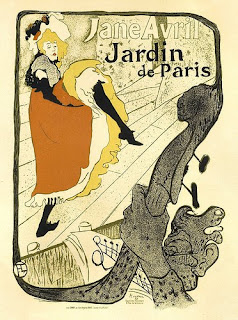If you’re exhausted by all of the new books on happiness, maybe you want to move on to something a bit heavier – say, wisdom? If so, you could start with Stephen Hall’s new book by that title, which he refers to as the “woolly mammoth of ideas.” Hall is a science journalist who writes about philosophy (seriously? my new hero), and has turned a New York Times Magazine article he wrote in 2007 into a full “philosophical, psychological, and neuroscientific enquiry into the subject of wisdom.” I haven’t read it yet, but a recent review by A.C. Grayling brought up several points about investigations of this kind (you know, the kind where someone applies the scientific method to the most perplexing riddles of humanity and hopes to emerge with something of real interest.)
First, Grayling points out that minds – and the wisdom they contain – are not mere isolated, individual brains, but instead depend very much on social interactions:
One must point to another and quite general difficulty with contemporary research in the social and neurosciences, namely, a pervasive mistake about the nature of mind. Minds are not brains. Please note that I do not intend anything non-materialistic by this remark; minds are not some ethereal spiritual stuff a la Descartes. What I mean is that while each of us has his own brain, the mind that each of us has is the product of more than that brain; it is in important part the result of the social interaction with other brains. As essentially social animals, humans are nodes in complex networks from which their mental lives derive most of their content. A single mind is, accordingly, the result of interaction between many brains, and this is not something that shows up on a fMRI scan. The historical, social, educational, and philosophical dimensions of the constitution of individual character and sensibility are vastly more than the electrochemistry of brain matter by itself. Neuroscience is an exciting and fascinating endeavour which is teaching us a great deal about brains and the way some aspects of mind are instantiated in them, but by definition it cannot (and I don't for a moment suppose that it claims to) teach us even most of what we would like to know about minds and mental life.
I don’t think Grayling is making any controversial claim here – sure, you can’t reduce wisdom to electrochemistry. But I am not sure what he means by distinguishing so sharply between individual brains and socially-produced minds. If social interaction is crucial in providing much of the content for the mind, isn’t it crucial because it changes individual brains? As long as social settings have some effect on our conscious experience, wouldn’t some of that effect take place in our brains? Studying brain matter may not provide the content of wisdom (or happiness, or morality, other topics of the contemporary research he refers to), but that seems like a separate – although related – point. I guess I’d have to read more about how exactly he makes this distinction between brain and mind. But I do certainly agree with him that looking more closely at social interaction (and studying social, historical, and educational dimensions) is important if we want to find out more about wisdom. He continues:
But the complexity of the task does not entail that it is permanently unresolvable; rather, it forces us to think afresh about what questions we are asking and what phenomena we are investigating…wisdom relates to character and behaviour in a social setting, and that we are therefore more likely to learn about it from literature, history, and philosophy than from other sources. This is not to downplay the importance of the new neurologically-informed social sciences, which are fascinating and promising in equal measure; but it is to insist that all our studies need to connect with all our other studies, and that some of them might merit still taking the lead even though others now have superb new machines to aid them. I suspect that Hall shares this view; which is the most interesting implication of his book.
Studies connecting to all our other studies? I’m all for it. It seems that an interdisciplinary approach may be our best (or wisest?) bet in tackling this woolly mammoth of an idea.
Related Link: What is Wisdom? 2009 lecture by Brown University professor Charles Larmore (PDF)




























